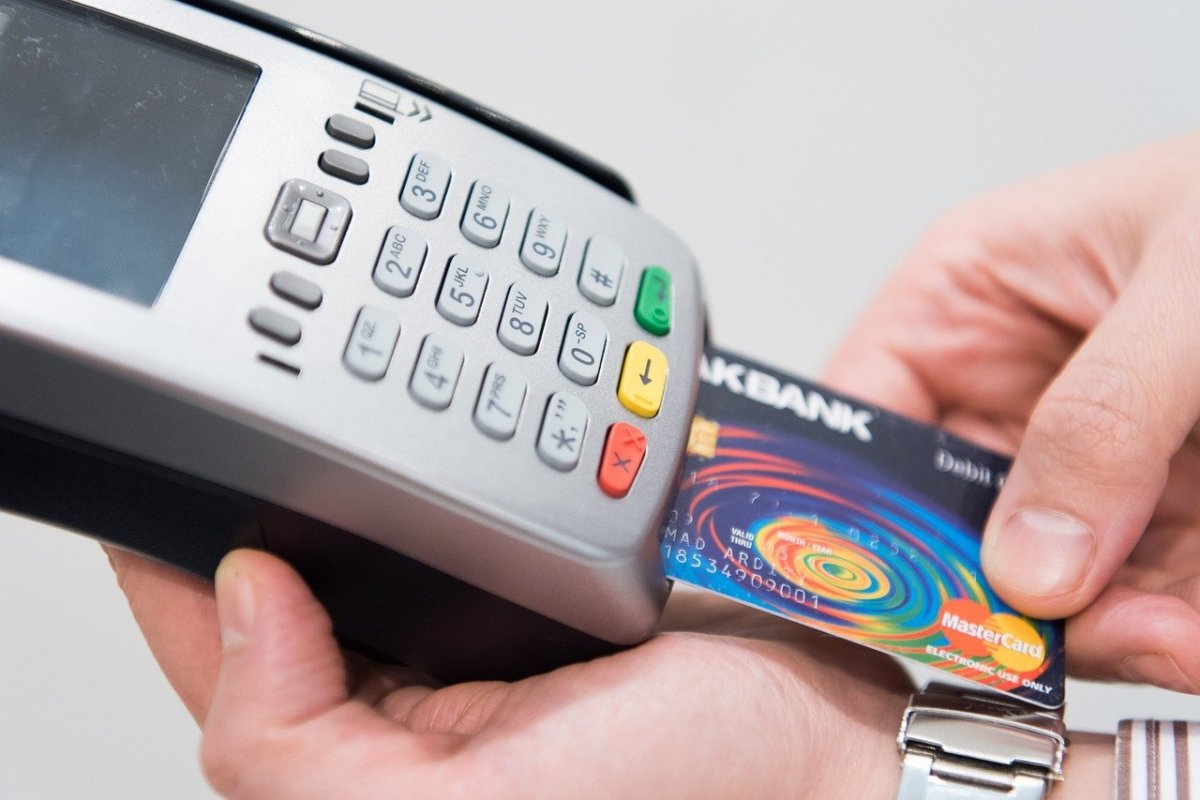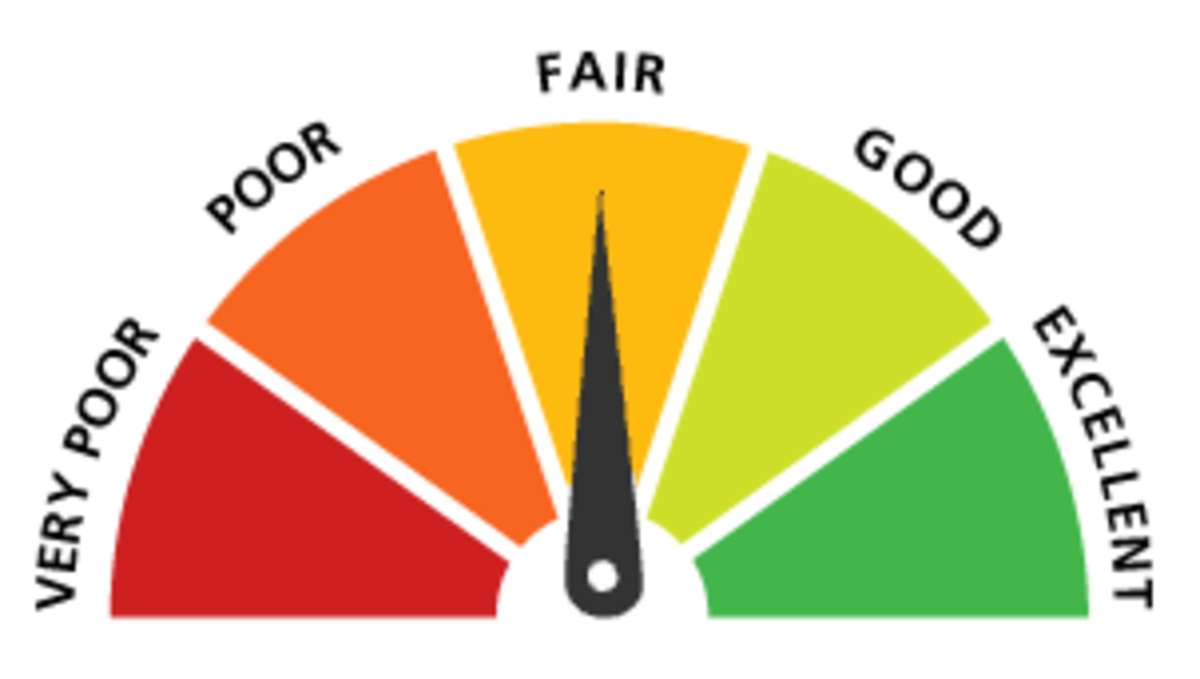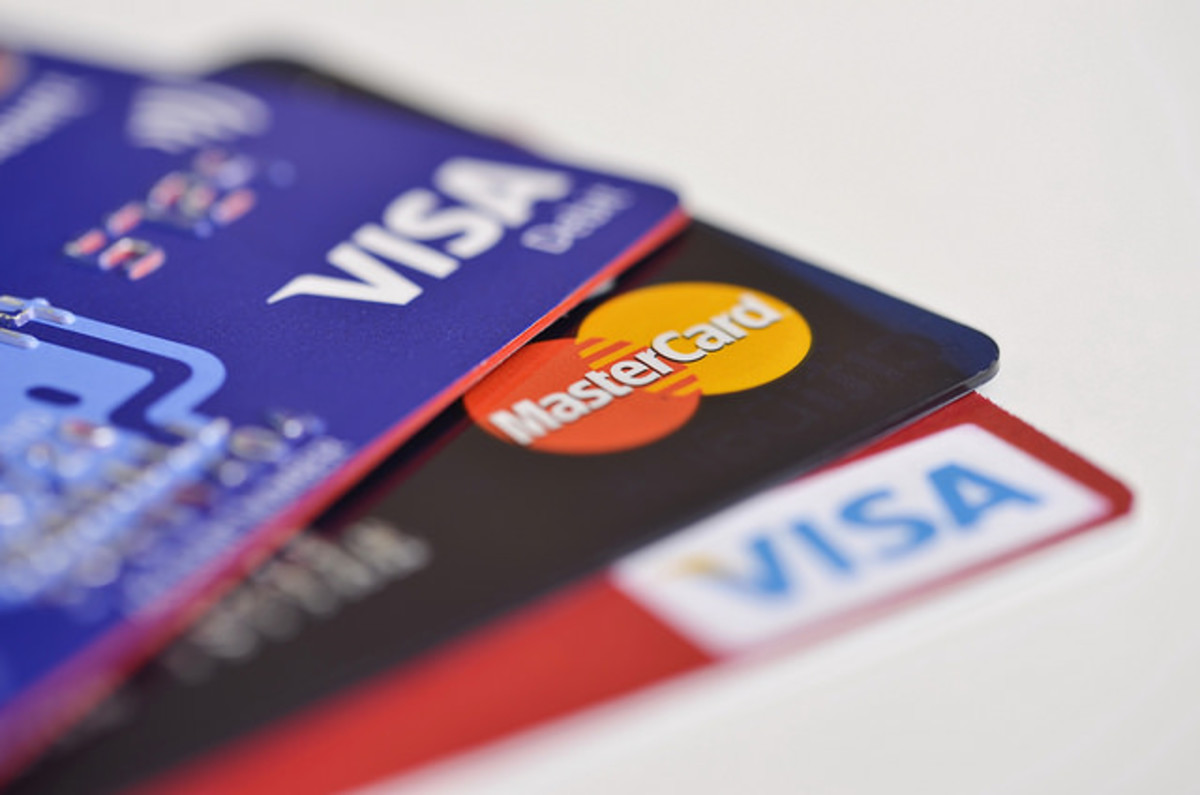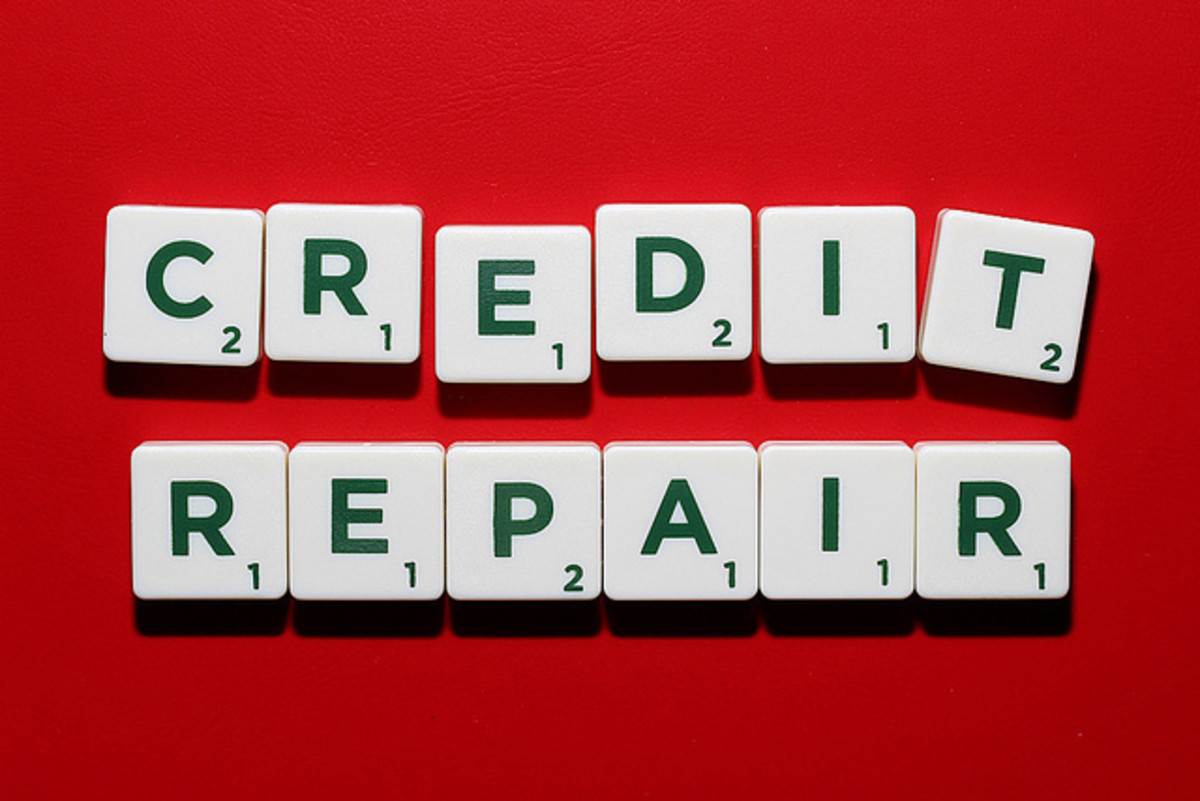Where Does Your Credit Fall in the Credit Score Range?
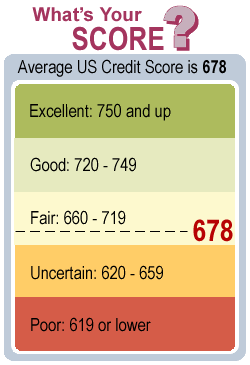
We hear a lot about credit scores but how many of us really know what they mean? In order to understand your FICO credit score, you need to know the range that your score falls in. Then you need to learn what each credit score range means. With this information, you will be better prepared to request credit or work on increasing your score.
FICO credit scores range from 300 to around 850, with the average somewhere around 670. Ranges are arbitrary. There are very few hard set numbers. Each lender has their own guidelines, so just get to know the average ranges so you'll have an idea where your score falls. Described below are typical FICO credit score ranges.
Credit Score Range
800 and up: You have flawless credit! The great news is that you will never be denied a loan or credit by any financial institution, at least not based on your credit score. You will always get the lowest quoted APR (annual percentage rate). People with credit scores above 800 typically carry a lot of credit, but never fail to pay their payments on time.
720-799: This is considered excellent credit. There isn't much difference between this range and the one above. A closer check into your history will be made and fewer incentives will be offered to you. But you still should be offered the same low rates.
680-719: This is that small gap between good and great. You will still be able to get most anything you apply for, but your rates will be a little higher.
620-679: This is good or average credit. It is at this level that you will not be approved for everything you apply for and will start to see noticeably higher rates.
580-619: Poor credit. This is the high end of sub-prime financing. You will have a hard time getting financed. If you are approved, your rates will be high. You will most likely not be able to get unsecured credit.
500-579: Bad credit, plain and simple. With this low of a score, the only financing that should be sought are debt consolidation loans.
Below 500: Only very high interest, secured credit will be granted. It is best to seek a professional for help and look for credit solutions to improve your credit score.
More Articles by Beth Parker:
- Instant Loans
What can you do if you have an emergency that requires cash, such as a car repair or a utility shutoff notice, and you don't have enough cash? If it's something small, you can probably borrow from someone... - Unsecured Loans
Unsecured loans are also referred to as signature loans. They are loans that do not require any kind of collateral or security. You don't have to put your car, house or boat up as collateral to get an... - Do-it-Yourself Credit Card Debt Settlement
Are you tired of creditors calling? Is your mailbox full of debt collection letters? Unless you are in such dire straits that you cannot save any money, you can settle your credit card accounts for... - Unsecured Personal Loans
Unsecured personal loans are loans that you are personally responsible for paying back that are not backed by any tangible property or collateral. They are usually based on one's credit history. It is... - Debt Negotiation
Mounting debts can send you into a panic. Since it is so embarrassing, most people will not discuss their problems until they are out of control. Debt negotiation is the solution for people who cannot...

